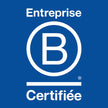IT IS WELL KNOWN, BREASTFEEDING DAMAGES THE BREASTS
- FALSE If you breastfeed well, avoid engorgement and carry out gradual weaning, your breasts will be much less harmed by breastfeeding than by suddenly cutting off lactation at birth! To maintain the beauty of your breasts, you must above all be careful, during pregnancy, not to gain too much weight and pamper your breasts well daily using a treatment adapted to stimulate the supporting tissues and avoid thus the risk of skin sagging linked to sudden variations in volume. During the breastfeeding period, you will continue to provide daily care to your breasts and opt for a good nursing bra that supports without compressing.
IF YOU HAVE A SMALL BREAST, YOU PRODUCE TOO LITTLE MILK
- FALSE Even if the nurses to whom ladies at one time entrusted the care of breastfeeding their babies were distinguished by very generous breasts... know that the mammary gland has approximately the same volume in all women. Breast size therefore has no relation to the quantity of milk produced. And lactation essentially depends on your baby's appetite: the more he breastfeeds, the more milk you will produce... even with a "small 85 B"!
IT OFTEN HAPPENS THAT BREAST MILK IS NOT NOURISHING ENOUGH
- FALSE Breast milk is never bad, too thin or not nourishing enough. If your child is not gaining enough weight, the explanation is more likely to be a poor latch. It may also happen to you, like all young mothers, to experience transient drops in your milk production, due to fatigue or a strong emotion... Don't panic: simply have your baby breastfeed as often as possible and the longest time possible. And get as much rest as possible. Your milk supply will quickly return to normal.
BREASTFEEDING PREVENTS YOU FROM LOSSING PREGNANCY POUNDS
- FALSE On the contrary, milk production consumes a good part of your daily calorie intake. If you make sure you eat in a balanced way and in reasonable quantities, breastfeeding can only help you lose pregnancy pounds more quickly.
BREASTFEEDING IS NECESSARILY EXHAUSTING FOR THE MOM - FALSE Breastfeeding is not in itself tiring. As long as you are well settled and your baby is too, feedings do not require any particular physical fitness. If you feel tired, it is above all the physiological upheaval and the emotion caused by the birth of your baby that you should attribute this drop in energy levels. Perhaps you are also overdoing it? During this period, don’t try to play superwomen! At home, get help from your dad, family, friends. And calmly enjoy the soothing hormonal secretion caused by breastfeeding!
YOU CAN SLEEP WITH YOUR BABY TO MAKE EASIER BREASTFEEDING
- TRUE Mother-baby proximity promotes breastfeeding, and the presence of your baby by your side can greatly facilitate nighttime feedings. However, it is important to respect the safety conditions for letting your child sleep in your bed: no duvet on him, no pillow under his head, favor a firm mattress, anticipate any risk of falling, etc. Other possible options: place your baby's bed next to yours, or adopt a special co-sleeping cradle, which attaches to the parents' bed.
NIGHT FEEDINGS MAKE BREASTFEEDING IN GENERAL EASIER
- TRUE Although many mothers have suggested that you try to “get your baby to sleep through the night” as soon as possible, try to resist this pressure! In fact, most infants need to breastfeed at night during their first months. In addition, nighttime feedings promote a good start and good maintenance of lactation by avoiding too long an interval between two stimulations.
FLAT OR POORLY SHAPED NIPPLES PREVENT BREASTFEEDING
- FALSE Babies always manage to breastfeed, regardless of the shape of the breasts. Just be sure to place your child in the correct position, facing your breast. If he really has difficulty grasping it, for example because it is too swollen with milk, pull lightly on the nipple to soften it and express a little milk before presenting it to your child.
BREASTFEEDING LESS THAN 6 MONTHS IS NOT USEFUL
- FALSE Even though health authorities and many pediatricians recommend breastfeeding until the child is 6 months old, it all depends on your desire and availability. Breastfeeding even for a short time will be beneficial to your health and that of your baby. By returning to work, you will be able to continue breastfeeding in the morning, evening and weekends. But everything will also depend on your baby! Some little ones can quickly express their desire for autonomy...while others will ask for their mother's breast much later. The father's place must also be considered, because the longer breastfeeding lasts, the more he may feel excluded.
BREASTFEEDING CAN ALSO HURT
- TRUE But above all it is a poor position of your baby during feedings which can cause pain. Especially the first week when the nipples may be sensitive. This is a normal and transient phenomenon. If, however, it persists, do not hesitate to seek advice from your pediatrician or midwife.
BREASTFEEDING DOES NOT REDUCE CONTRACEPTION
- TRUE From the moment you breastfeed exclusively, the famous “diaper return” is blocked and you can rest easy. In theory... It can indeed happen that the return of labor takes place while you are breastfeeding and that ovulation takes place even before the return of your period. Unless you want to immediately relive a new pregnancy, contraception is therefore advisable. Talk to your doctor or midwife.
IMPOSSIBLE TO BREASTFEED WHEN TAKING MEDICATION - FALSE Many medications are compatible with breastfeeding. Your doctor is there to ensure that you receive appropriate prescriptions. On your side, however, no self-medication! Always ask your doctor, midwife or pharmacist for advice before taking a treatment which, depending on the age of your little one, may or may not cause problems.




